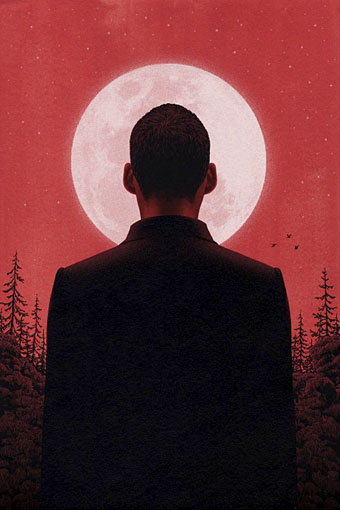Man’s body dish for Sashimi under the cherry blossom (2005) by Ryoko Kimura.
• Godley & Creme’s Consequences (1977) is reissued this month on CD and vinyl. Originally a three-disc concept album with a theme of climate disaster and the natural world’s revenge on humanity, Consequences was released at a time when punk and prog rock were fighting for the attention of music listeners. 1977 wasn’t the end of prog by any means (many of the vilified bands had some of their greatest successes at this time) but Godley & Creme’s transition from the smart pop songs of 10cc to extended instrumental suites was abrupt, and their concept, such as it was, lacked the drama and accessibility of Jeff Wayne’s The War of the Worlds, even with the addition of Peter Cook providing a multi-voice comic narrative between the musical pieces. (Kevin Godley ruefully referred to the album in later years as Con Sequences.) The album flopped, and has been a cult item ever since.
• “A word of caution, though. Once you do read it, it’s hard to let it go.” Philip Hoare on Herman Melville and Moby-Dick. Related: William T. Vollmann on how a voyage to French Polynesia set Herman Melville on the course to write Moby-Dick.
• Samm Deighan on The “Faraway Forest” in Peter Strickland’s Katalin Varga, The Duke of Burgundy, and The Cobbler’s Lot.
• Brian Eno, Roger Eno, and Daniel Lanois discuss the recording of Apollo: Atmospheres & Soundtracks.
• John Boardley on the first fashion books, Renaissance pixel fonts and the invention of graph paper.
• Melanie Xulu looks back at a time where major labels were releasing witchcraft rituals.
• “Tom Phillips’ A Humument is a completely novel project,” says Rachel Hawley.
• John Foster on the evolution of Stereolab’s analogue-inspired record sleeves.
• At Dennis Cooper’s: a history of le Grand Guignol by Agnes Peirron.
• Casey Rae on William S. Burroughs and the cult of rock’n’roll.
• An Austin Osman Spare image archive.
• Consequences (1965) by John Coltrane | Moby Dick (1969) by Led Zeppelin | Consequence (1995) by Paul Schütze



